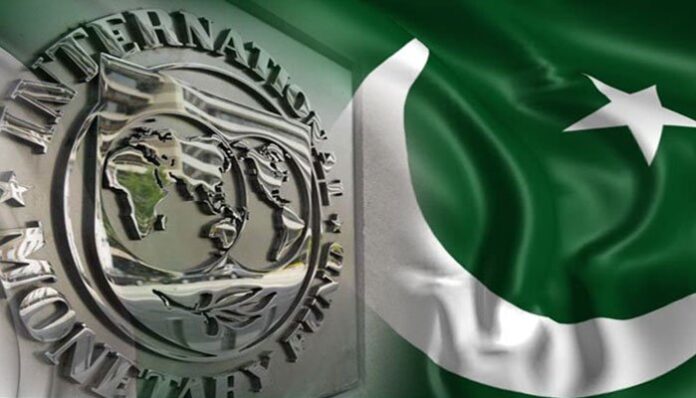–Global financial body says ‘govt has made considerable progress in last few months to advance economic reforms’
–Fund says ‘inflation should start to see a declining trend as the pass-through of exchange rate depreciation has been absorbed’
ISLAMABAD: The International Monetary Fund (IMF) on Friday announced that Pakistan has achieved all of its economic goals in terms of performance, as it concluded its 10-day talks with the government.
“Considerable progress has been made in the last few months in advancing reforms and continuing with sound economic policies,” the global financial body said.
The IMF further noted in its statement that “all end-December performance criteria were met and structural benchmarks have been completed” and in terms of performance, Pakistan achieved all economic targets.
“Steadfast progress on program implementation will pave the way for the IMF Executive Board’s consideration of the review,” it said, adding that “development and social spending have been accelerated” through programme implementation.
The IMF mission led by Ernesto Ramirez Rigo visited Islamabad during February 3-13 to initiate discussions on the second review of the authorities’ economic reform programme supported under the Extended Fund Facility (EFF) arrangement.
At the conclusion of the visit, Rigo said that the IMF team had “constructive and productive discussions with the Pakistani authorities and commended them on the considerable progress made during the last few months in advancing reforms and continuing with sound economic policies”.
“The mission and the authorities made significant progress in the discussions on policies and reforms,” the statement quoting Rigo said.
“The macroeconomic outlook remains broadly as expected at the time of the first review. Economic activity has stabilized and remains on the path of gradual recovery. The current account deficit has declined, helped by the real exchange rate that is now broadly in line with fundamentals, while international reserves continue to rebuild at a pace considerably faster than anticipated,” the statement said.
It added that “inflation should start to see a declining trend as the pass-through of exchange rate depreciation has been absorbed and supply-side constraints appear to be temporary”.
According to the statement, “Fiscal performance in the first half of the fiscal year remained strong, with the general government registering a primary surplus of 0.7 percent of GDP on the back of strong domestic tax revenue growth. Development and social spending have been accelerated.”
Meanwhile, a spokesperson of the Finance Division said that the IMF mission expressed satisfaction with the progress made so far. “All end-December performance criteria were met, and structural benchmarks have been completed,” he commented on the conclusion of the talks.
The talks were concluded with a complete understanding and progress in all areas was noted. The IMF Board in all likelihood will approve the recommendations of the review team.
The IMF had asked Pakistan to approve a law pertaining to State Bank of Pakistan’s autonomy. In addition to this, they also asked the ministry of energy to make an amendment in the Nepra act.
Besides this, the IMF mission had reduced the FBR’s annual target to Rs5,238 billion. The IMF was upset with the tax department’s performance for merely collecting Rs2,098bn in the first six months of the financial year.
Moreover, the mission also asked Pakistan to increase the gas and electricity prices; however, the government did not increase the tariffs even though a summary seeking an increase in the gas prices was tabled in the ECC meeting three times over the past month.
Earlier it was reported that the financial body has asked Pakistan “to reduce its trade and commerce reliance on Beijing” and look for other international options by signing free trade agreements (FTAs) with other countries as well, bringing a new challenge as Islamabad was not prepared to even reconsider this position.




